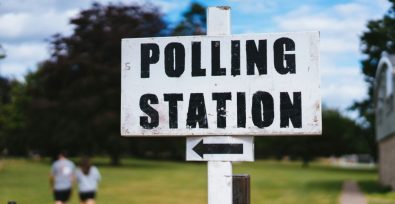For nearly 150 years, forced labor has remained legal in California’s prisons under a constitutional exception. This November, voters have the opportunity to abolish this practice through Proposition 6, a measure that could reshape the state’s approach to incarceration and rehabilitation.
The fight against forced labor
Proposition 6, authored by Assemblymember Lori Wilson and co-sponsored by Freedom United, seeks to remove the clause in the state’s constitution that allows involuntary servitude as a punishment for crime. This clause mirrors the exception found in the 13th Amendment of the U.S. Constitution, which, while abolishing slavery, left an opening for forced labor in prisons.
Rita Omokha for The Guardian reports,
Wilson’s proposal, officially called Assembly Constitutional Amendment-8, a legislative measure now on the ballot as Proposition 6, is part of a 14-bill reparations package that would amend the California constitution to read “Slavery and involuntary servitude is prohibited,” ensuring it applies to everyone.
In practice, Wilson said, ACA 8 would allow inmates to choose their jobs and give them access to programs that would help them thrive rather than be exploited. To that end, a related bill proposes creating voluntary work programs within the prison system.
“ACA 8, or Prop 6, was inspired by the ongoing need to correct a constitutional injustice,” Wilson, who represents Sacramento and Solano counties and is chair of the Black caucus, said. “The desire to dismantle the legacy of slavery and systemic racism was central to my decision – [the clause has been] a remnant of our nation’s dark history with slavery.”
A profitable system
An American Civil Liberties Union (ACLU) report highlighted that over 65% of incarcerated individuals in California are forced to work in jobs that benefit the state and private contractors. These range from janitorial work to firefighting. In 2022, nearly half of California’s firefighting force was made up of incarcerated workers—saving the state millions while paying workers mere cents per hour.
Rights advocates argue that this labor system reinforces racial and economic inequities and that those imprisoned are being exploited for profit. Esteban Núñez, a formerly incarcerated advocate is clear,
“This isn’t just about low wages; it’s about forced labor. The state and private companies are saving billions by relying on a workforce that has no choice.”
An uncertain outcome
California voters appear divided. Polling shows nearly half oppose the measure, with critics questioning whether it will lead to meaningful change or simply serve as symbolic progress. The measure’s outcome could set a precedent for other states to follow or reject.
Wilson remains hopeful, noting that while some states have taken steps to ban forced labor, California’s initiative is part of a broader push for systemic change.
“If passed, this could be a critical step in addressing the exploitation embedded in our justice system.”
Yes to Prop 6!
The debate surrounding Proposition 6 goes beyond the ballot box—it raises questions about the role of prisons and forced labor in the U.S. justice system.
“This is about more than a vote; it’s about recognizing and dismantling the legacy of slavery that persists in our prisons,” says Núñez.
Freedom United believes that Proposition 6 is part of a larger battle to end government-sanctioned slavery across the U.S. As we work to pass this measure in California, we are also campaigning to remove the forced labor clause from the 13th Amendment of the U.S. Constitution. By voting “Yes” on Proposition 6, Californians have the chance to contribute to a movement that pushes for real, systemic change.
Join us in demanding true abolition—one that recognizes the full humanity of all individuals and ends the exploitation of incarcerated workers once and for all.







Freedom United is interested in hearing from our community and welcomes relevant, informed comments, advice, and insights that advance the conversation around our campaigns and advocacy. We value inclusivity and respect within our community. To be approved, your comments should be civil.